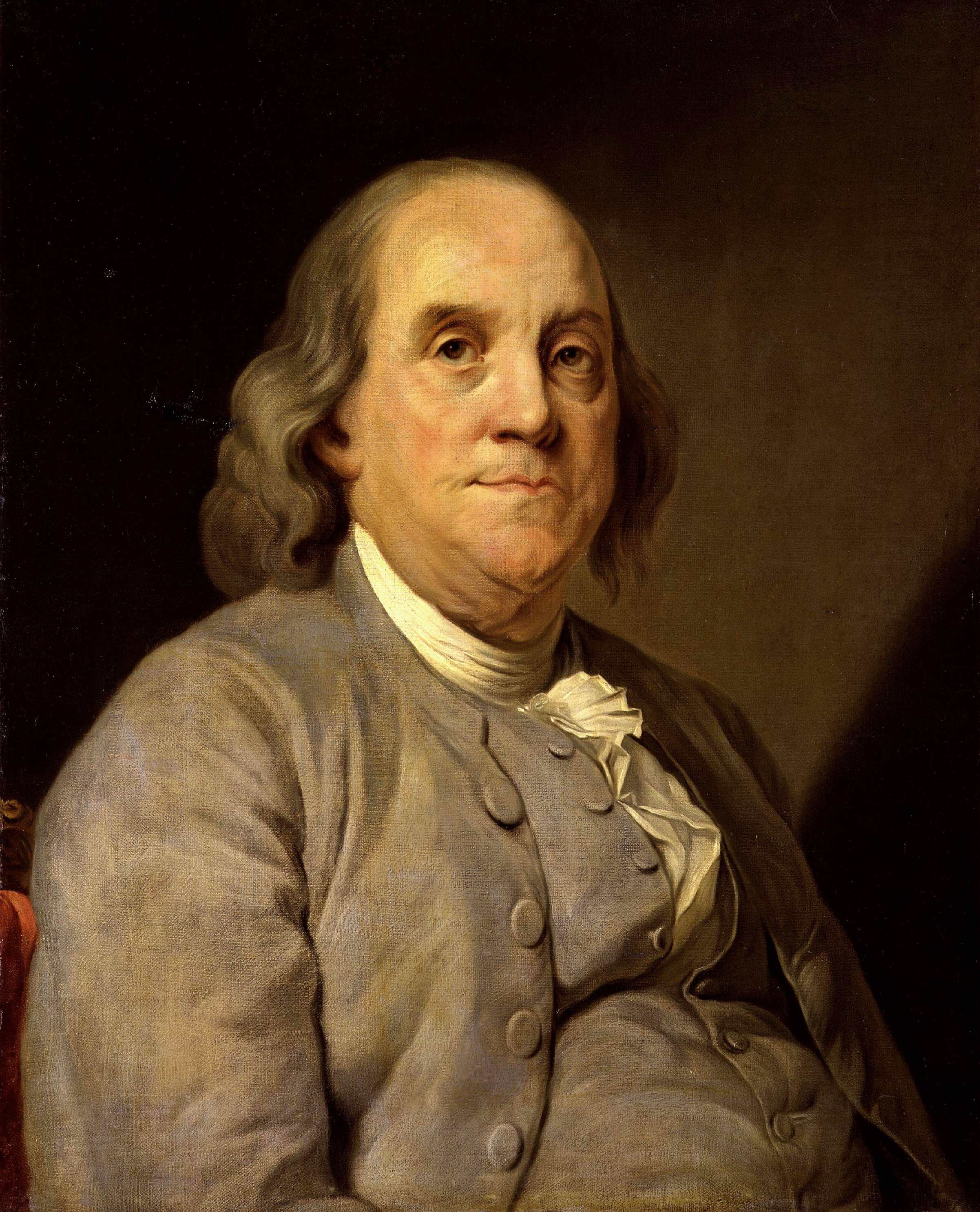 |
| Benjamin Franklin (c. 1875), by Joseph-Siffred Duplessis [A] |
Being such a prominent figure in American history, it's curious that two rather controversial aspects of Franklin's public life are much less mentioned: Franklin advocated the use of paper money.
To add insult to injury, in his 1729 pamphlet "A Modest Enquiry into the Nature and Necessity of a Paper-Currency" Franklin also explained why labour should be the real measure of wealth. [1]
In that pamphlet, and conscious that opinions on policy matters were affected by vested interests ("Men will always be powerfully influenced in their Opinions and Actions by what appears to be their particular Interest"), Franklin first explained why some interest groups would oppose an increase in "our present stock of paper money":
"I say all such [moneylenders/bankers] will probably be against a large Addition to our present Stock of Paper Money; because a plentiful Currency will lower Interest, and make it common to lend on less Security".To make things worse, Franklin's advocacy of paper money did not propose anchoring the value of paper money to that of precious metals, but to labour:
"For many Ages, those Parts of the World which are engaged in Commerce, have fixed upon Gold and Silver as the chief and most proper Materials for this Medium [of exchange] (...) But as Silver it self is no certain permanent Value, being worth more or less according to its Scarcity or Plenty, therefore it seems requisite to fix upon Something else, more proper to be made a Measure of Values, and this I take to be Labour.Those who've read my post Adam Smith and LTV should find the passage above quite reminiscent.
"By Labour may the Value of Silver be measured as well as other Things. As, Suppose one Man employed to raise Corn, while another is digging and refining Silver; at the Year's End, or any other Period of Time, the compleat Produce of Corn, and that of Silver, are the natural Price of each other; and if one be twenty Bushels, and the other twenty Ounces, then an Ounce of that Silver is worth the Labour of raising a Bushel of that Corn. (...)
"Thus the Riches of a Country are to be valued by the Quantity of Labour its Inhabitants are able to purchase, and not by the Quantity of Silver and Gold they possess; which will purchase more or less Labour, and therefore is more or less valuable, as is said before, according to its Scarcity or Plenty".
Notes:
[1] And that, if I had to guess, explains why some MMT supporters found "some convoluted passages" they didn't understand in Franklin's pamphlet.
Image Credits:
[A] "Portrait of Benjamin Franklin" (c. 1875), by Joseph-Siffred Duplessis. Source: National Portrait Gallery, Smithsonian Institution. Wikipedia.
"it's curious that two rather controversial aspects of Franklin's public life are much less mentioned"
ReplyDeleteYeah, just like it's curious that Einstein's socialism is never mentioned, that the Republican party relied on rhetoric highlighting the LTV in their early campaigns, that the LTV was an integral part of early libertarian worldviews (e.g., Lysander Spooner and Benjamin Tucker), that Paul Samuelson never defined "value" in his famous textbook, that arguments debunking free trade are simply unknown to most economists, and so on. It's not in the interests of anybody but radicals to point these things out, so it doesn't happen much.
I once defaced a $100 bill by drawing a cartoon bubble over Franklin's head, and then writing in it: "Read Marx!" I think it's reasonable to assume that if Franklin had lived another forty years, he would have become a socialist. He became more and more radical in his worldview over his lifetime.
Check this out:
ReplyDeletehttp://ralphanomics.blogspot.com/2012/05/benjamin-franklins-arguments-for.html
From reading that article, I'd say Franklin falls squarely in the tradition of inflationist/mercantilist writers, such as William Potter, John Law, and so on. Another piece of proof that there was vital debate on all the major economic questions years before The Wealth of Nations.
DeleteThere is no doubt about that. Marx himself quoted Petty and the Physiocrats favorably.
DeleteWhat I found interesting is that Franklins support for paper money is emphasized, but his support for labour as the measure of value slips in the background.
True. Marx actually quotes Franklin favorably in a footnote early on in volume 1 of Capital(he uses a phrase to the effect, "one of the most esteemed economists following Petty"). Strangely enough, though, I don't think he ever mentions him in Theories of Surplus Value. I'd be curious whether he comes up in either the Grundrisse or Contributions to the Critique of Political Economy (I haven't read either).
Delete